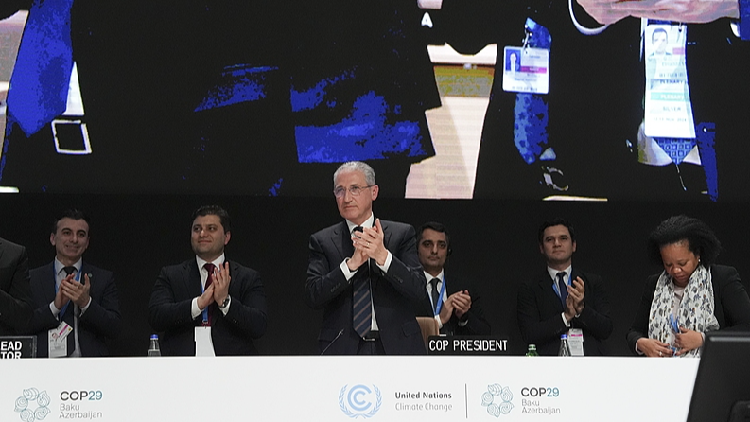UN Climate Change Conference Ends Following an Extension
The UN Climate Change Conference in Baku, which experienced an extension of more than 30 hours, reached its conclusion on Sunday.

During the conference, over 20 decisions were adopted to advance the goals of the UN Framework Convention on Climate Change, the Kyoto Protocol, and the Paris Agreement, culminating in a comprehensive set of outcomes known as the Baku Climate Solidarity Pact.
Significantly, the conference reached agreements on climate finance targets and corresponding arrangements for the period following 2025. These include a target of at least $300 billion annually from developed nations by 2035, alongside a climate financing objective of at least $1.3 trillion each year to support climate initiatives in developing countries.
Furthermore, the operational guidelines for the international carbon market mechanism under Article 6 of the Paris Agreement were finalized. The conference also established arrangements for the mitigation work program, the global adaptation goal, and additional measures to bolster global efforts towards a green and low-carbon transition.
The Chinese delegation was actively involved in negotiations and discussions concerning all aspects of the conference agenda. Additionally, the delegation organized a series of 10 themed days at the China Pavilion, showcasing various side activities.
China urges all parties to maintain their commitment to multilateralism and adhere to the principle of "common but differentiated responsibilities," ensuring that no actions taken under the Paris Agreement are reversed.
"As a responsible major developing country, China will steadfastly promote the multilateral process and international cooperation on climate change, regardless of how the global landscape evolves," emphasized Zhao Yingmin, head of the Chinese delegation and vice minister of ecology and environment.
"China will continue to implement its national strategy for actively addressing climate change, pursue its carbon peaking and neutrality goals, and engage extensively in South-South climate cooperation to contribute to global green, low-carbon, climate-resilient, and sustainable development," he further stated.
Zhao added that China is dedicated to providing support within its capacity to assist other developing nations in tackling climate challenges, contributing to the global pursuit of green, low-carbon, climate-resilient, and sustainable development.
Sanya Singh for TROIB News
Find more stories on the environment and climate change on TROIB/Planet Health












